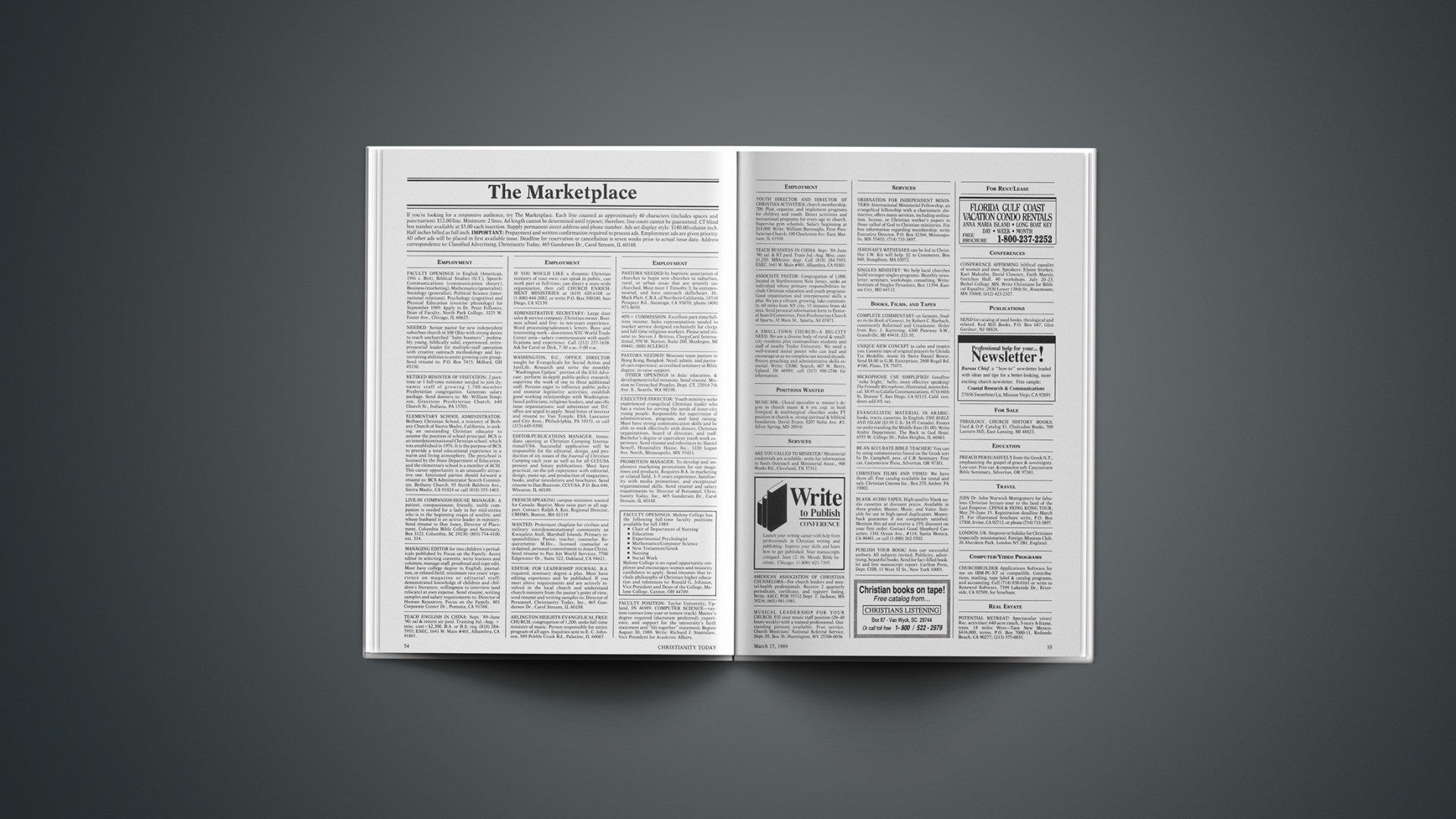Shusaku Endo is that rarest of Japanese creatures: a lifelong Christian. In a country where the church comprises less than 1 percent of the population, he was raised by a devout Christian mother and baptized at the age of 11. Even more amazing, Endo, Japan’s foremost novelist, writes books with Christian themes that invariably end up on our national best-seller lists.
His work has won praise from such writers as John Updike and Graham Greene, and he is often mentioned as a candidate for the Nobel Prize for Literature. In Japan he has become something of a cultural hero, and he even hosts a nighttime television talk show. Seven of Endo’s novels have been translated into English, but his name is also on seminary reading lists, for his most popular book here has been A Life of Jesus, his personal account of faith.
Growing up as a Christian in prewar Japan, Endo felt a constant sense of alienation. After the war he traveled to France in order to pursue his studies of such French Catholic novelists as Francois Mauriac and Georges Bernanos. But Lyon in 1949 hardly made him feel welcome: He was spurned this time on account of race, not religion. The Allies had cranked out a steady stream of anti-Japanese propaganda, and Endo found himself the target of much racial abuse.
Rejected in his homeland, rejected in his spiritual homeland, Endo underwent a grave crisis of faith. He spent several years researching the life of Jesus in Palestine, and while there he made a transforming discovery: Jesus, too, knew rejection. More, Jesus’ life was defined by rejection. His neighbors laughed at him, his family sometimes questioned his sanity, his closest friends betrayed him, and his countrymen traded his life for that of a terrorist. While on Earth, Jesus seemed to gravitate toward other rejects: prostitutes, tax collectors, paralytics, those with leprosy, notorious sinners.
This new insight into Jesus hit Endo with the force of revelation. From his faraway vantage point in Japan, he had viewed the Christian faith as a triumphant, conquering faith. He had studied the Holy Roman Empire and the glittering Crusades, had admired photos of the grand cathedrals of Europe, had dreamed of living in a nation where one could be a Christian without disgrace. But now, as he studied the Jesus of the Gospels, he saw that Christ himself had not avoided “disgrace.”
Jesus was the Suffering Servant, as depicted by Isaiah:
… there were many who were appalled at him—
his appearance was so disfigured beyond that of any man
and his form marred beyond human likeness—…
He had no beauty or majesty to attract us to him,
nothing in his appearance that we should desire him.
He was despised and rejected by men, a man of sorrows, and familiar with suffering.
Like one from whom men hide their faces … (Isa. 52:14; 53:2–3, NIV).
Many of Endo’s novels revolve around that theme of rejection and suffering. Silence, for instance, his most famous, tells of Christians in Japan who recanted their faith in the face of the shoguns’ brutal persecution. Endo had read many thrilling stories about the Christian martyrs, but none about the Christian traitors. How could he? None had been written.
Yet, to Endo, the most powerful message of Jesus was his unquenchable love, even for—especially for—people who had betrayed him. One by one, his disciples had deserted him; but still he loved them. His nation had him executed; but while stretched out naked in the posture of ultimate disgrace, Jesus roused himself for the cry, “Father, forgive them, for they know not what they do.”
Shusaku Endo believes that Christianity has failed to make much impact on Japan because the Japanese have heard only one side of the story. They have heard about the glory and beauty and majesty; today, Japanese tourists visit Chartres and Westminster Abbey and snap pictures of that glory. Japanese choirs and orchestras, like their Western counterparts, now perform Handel’s Messiah and Bach’s Mass in B minor.
But somehow, the Japanese have missed another message: the story of a God who makes himself powerless, of a Son of God who weeps as he approaches Jerusalem. According to Endo, Japan, a nation of authoritarian fathers, has understood the father love of God, but not the mother love, the love that forgives wrongs, binds wounds, and draws, rather than forces, others to itself. (“O Jerusalem, Jerusalem, you who kill the prophets and stone those sent to you, how often I have longed to gather your children together, as a hen gathers her chicks under her wings, but you were not willing!”)
It is not just Japan, I think, that needs to hear this two-pronged message. We all need a reminder, and I know of no better time for such reflection than the Easter period, when we celebrate in one weekend God’s greatest rejection and his greatest triumph.
Christianity has two great symbols to offer the world: a cross and an empty tomb. An empty tomb without a cross would miss the central message of the gospel. As Endo points out, other religions offer a powerful, eternal Divine Being; only Christianity offers a God who became a man and suffered and died. The Servant did not take on meaningless pain: “he was pierced for our transgressions, he was crushed for our iniquities.”
In the course of his life and death, Jesus took on the weight of every reject, every failure, every sinner.
But a cross without an empty tomb would be merely tragic. Plenty of good men and women have lived, and loved, and died. Only one has come back after death with a promise to conquer death forever, and to make all things new.
We worship a risen Christ. We worship a crucified Christ. Anything less is not enough.










